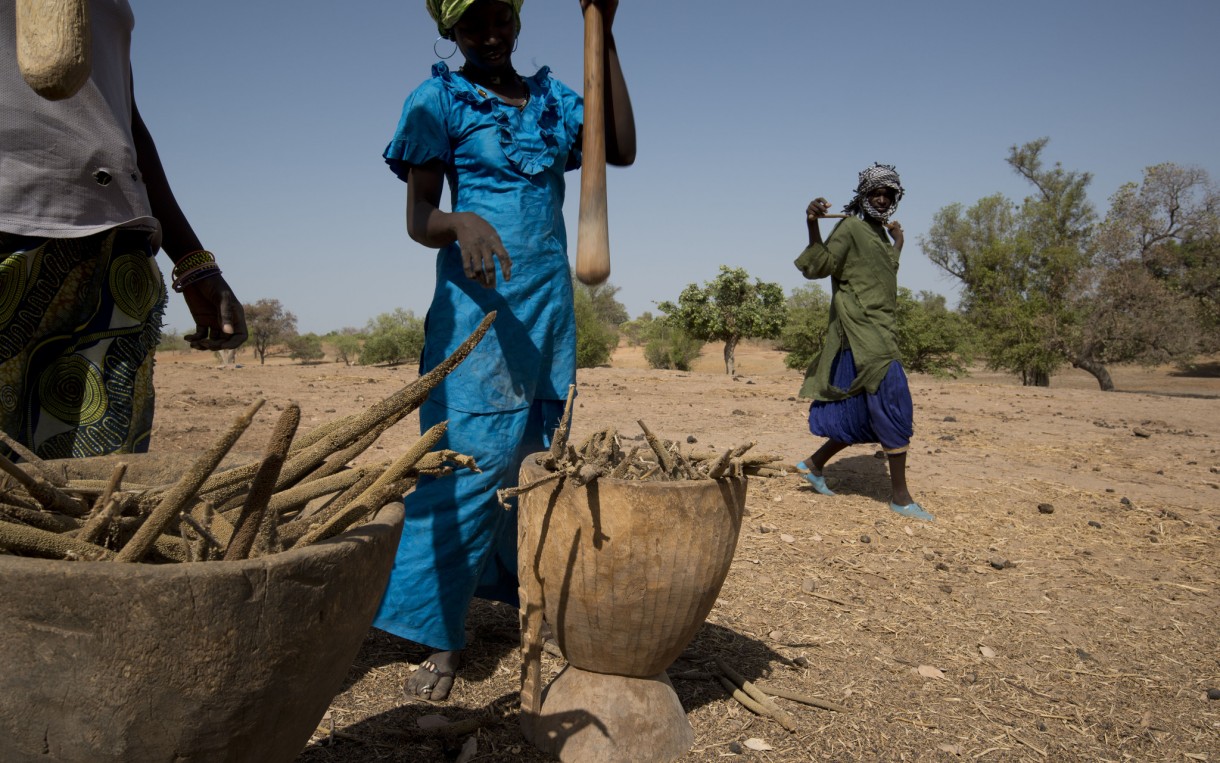4 agenda items for the Green Climate Fund board meeting
 Pounding millet in the village of Kalbiron, near Tambacounda, eastern Senegal. Oxfam is expanding its Rural Resilience Initiative to Senegal in 2013. Known as the R4 program, it offers farmers the opportunity to get weather insurance, and pay the premiums by working on community projects designed to reduce climate-related risks like soil degradation in flash flooding in the rainy season. Photo: Brett Eloff / Oxfam America
Pounding millet in the village of Kalbiron, near Tambacounda, eastern Senegal. Oxfam is expanding its Rural Resilience Initiative to Senegal in 2013. Known as the R4 program, it offers farmers the opportunity to get weather insurance, and pay the premiums by working on community projects designed to reduce climate-related risks like soil degradation in flash flooding in the rainy season. Photo: Brett Eloff / Oxfam America
When the Green Climate Fund board meets next week, making progress in these areas is critical to making sure the Fund is living up to its vision.
Annaka Peterson is the Senior Program Officer of the Adaptation Finance Accountability Initiative, led by the World Resources Institute, Overseas Development Institute, and Oxfam.
Like it or not, approving $2.5 billion in funding is set as the benchmark for success of the Green Climate Fund (GCF) in 2016. As an advocate and manager, I understand the allure of setting big dollar figure targets, but I’m also painfully aware of the risks and shortcomings of such an approach. The meeting will take place on March 8 – International Women’s Day – and I’m still optimistic that the GCF can be the Fund that women like Ipaishe, Maria, Carmen and Langing need it to be. It will take more than talk of big money to turn that into reality, though. So before I head home to pack my suitcase and catch a flight to South Korea for the GCF Board Meeting, here are four recommendations for the GCF Board members as they prepare for the meeting next week:
Hone in on turning country ownership into reality.
Country ownership is widely recognized as international best practice and is one of the foundational principles of the Green Climate Fund, but translating country ownership from a guiding principle into reality requires deliberate decision making on the part of the Board. The strategic plan must translate the principle of country ownership into the long-term vision and short-term operational goals of the Fund. The readiness program needs to kick into high gear and be sustainable over the long-term and able to continuously support country-level institutions to take the lead and engage stakeholders. Further, operationalizing country ownership must be the primary goal of the accreditation strategy, and the information disclosure policy must make Fund information publicly available so country-level actors can hold the GCF and its partners accountable. Efforts like these are key to ensuring the quality and sustainability of GCF funding.
Avoid the temptation to be too prescriptive and extractive in performance management.
Donors are good at demanding accountability for the use of their taxpayers’ money, but this often comes at the cost of supporting accountability of public institutions in recipient countries and ensuring accountability to the people that money is intended to help. Plus, experts have widely agreed that climate change adaptation is a process, success is context specific and that it is futile to try to identify and agree on a common set of global indicators. The GCF’s performance management system must work toward a system of mutual accountability amongst the Fund, implementing entities, Nationally Designated Authorities (NDAs), and the people the Fund aims to help – namely, developing countries and communities most vulnerable to the effects of climate change. The GCF needs to let learning and accountability to people, drive its approach to monitoring and evaluation and performance management, rather than the expediency of aggregating across its portfolio.
Set a new standard of excellence for transparency.
Approval of the Fund’s information disclosure policy (building on its current interim policy) is one of the most important items on the Board’s agenda next week. Transparency alone isn’t enough, but it is an essential ingredient for accountability. The Fund’s information disclosure policy needs to limit exceptions to the presumption of disclosure, commit to proactive disclosure of contracts and other key documents; ensure the GCF’s partners are also required to disclose information about initiatives with financial support from the GCF; and confirm the 120 day rule for public disclosure of potential environmental impacts.
Let the needs and interests of women like Ipaishe, Maria, Carmen and Langing guide boardroom decisions.
The mission of the GCF is to support developing countries grow and develop in a way that limits dangerous emissions and builds the resilience of their citizens. If the Green Climate Fund isn’t able to help these women in their fight against climate change, it won’t matter if $2.5 billion goes out the door this year.
If the GCF board can manage to make progress in each of these areas next week, we’ll be on the right track for the planet, and especially for women in the developing world.